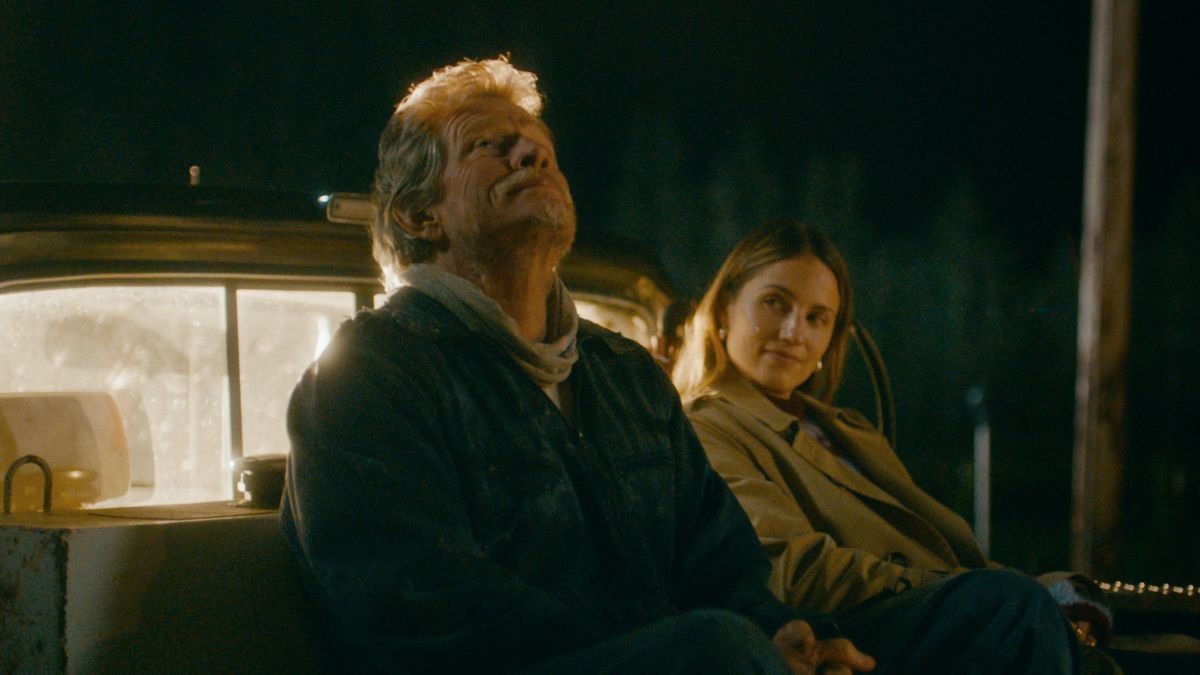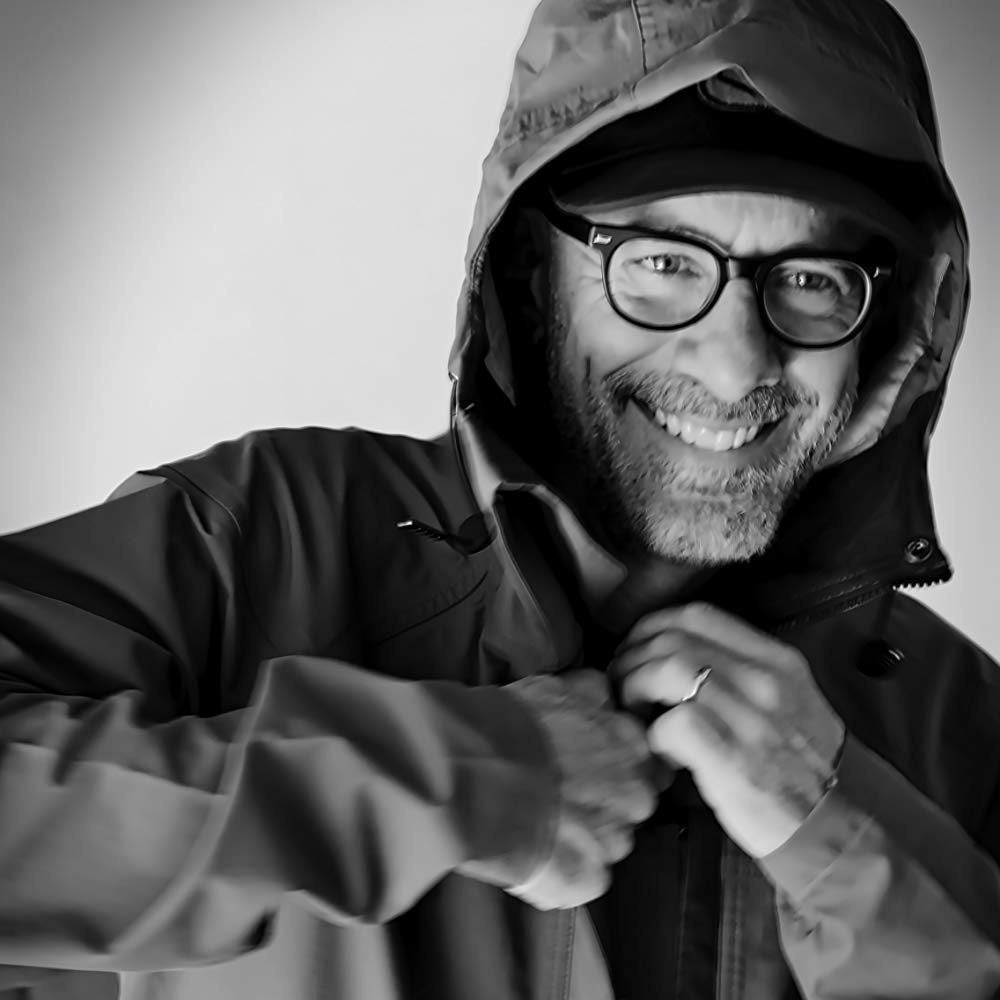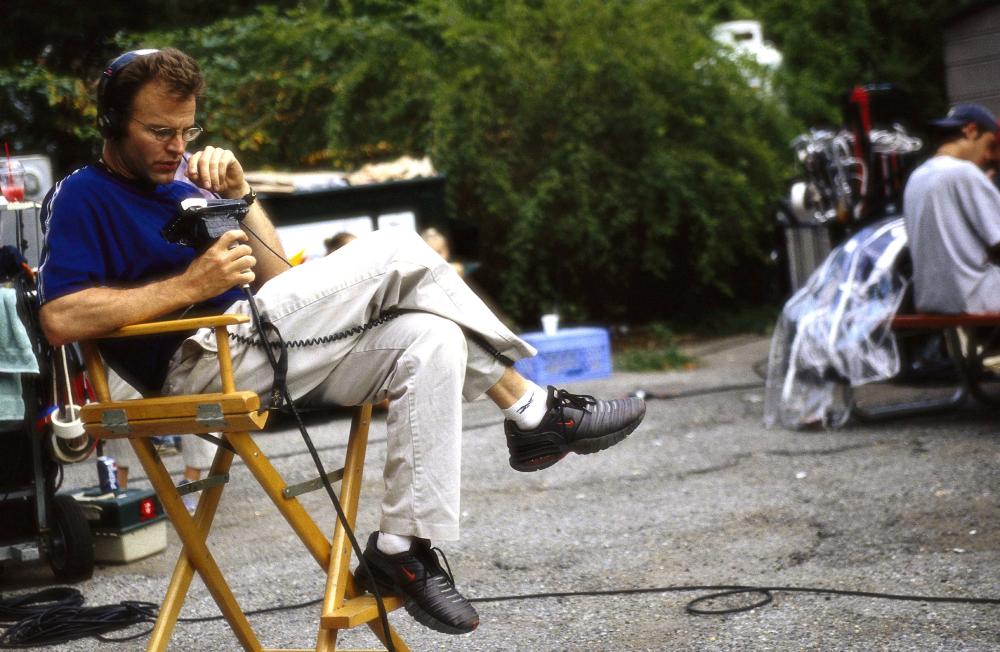As a producer, LIZ CARDENAS has a specialty in using a project’s ingrained constraints to its advantage, from the minimalist isolation of David Lowery’s A Ghost Story and Roshan Sethi’s 7 Days to the intimate escapism of Augustine Frizzell’s Never Goin’ Back, Daniel Laabs’s Jules of Light and Dark, and Jefferson Stein’s Burros. Her work has landed her accolades including a Producers Award nomination at the 2023 Film Independent Spirit Awards, a 2022 Spirit Award win for Best First Feature (for 7 Days), a 2019 John Cassavetes Award nomination (for Never Goin’ Back), a Dear Producer Award, Rotterdam Lab and Film Independent Lab fellowships, and inclusion in 2019’s LATINXT, a curated list of emerging Latinx creators from an initiative by Zoe Saldaña, Robert Rodriguez and Lin-Manuel Miranda. Before becoming a prolific producer and writer, Cardenas was a news reporter in Dallas and as an actor she has appeared in projects such as A Man Called Jon, Sweetbitter, and The Wolf of Snow Hollow.
Cardenas’s newest project as a producer is ACIDMAN. Directed by Alex Lehmann, Acidman stars Dianna Agron as a woman who travels to the remote Pacific Northwest to find her reclusive UFO-obsessed father, played by Thomas Haden Church. The film premiered at the 2022 Tribeca Film Festival before going on to win the American Film Festival’s Audience Award and the Dallas International Film Festival’s Grand Jury Prize. Brainstorm Media will release Acidman in theaters and on demand on March 31. We spoke with actor/writer/producer Liz Cardenas about her career and what led up to her newest release.
——
COLIN McCORMACK: How did you first get attached to Acidman?
LIZ CARDENAS: I met writer/director Alex Lehmann at Sundance on the eve of his premiere of Paddleton, which starred Ray Romano and Mark Duplass and was a Duplass Brothers production. I had an association with Duplass Brothers Productions because the president, Mel Eslyn, was a mentor of mine. So we had this shared connection and then amidst all the craziness of Sundance we had a really thoughtful conversation about movies and life and being an artist, and we really connected and then stayed in touch. We talked about what we were working on and so forth and then he came to me during COVID and said, “Hey, I have this personal passion project. I’ve wanted to work with you for a while, and I think this could be the perfect project.” Well, I was like, “Guess what? I’m already producing another Duplass film.” That’s when I was producing 7 Days. But we kept in touch.
Dianna Agron — who is our phenomenal lead actress and is also a producer on the film — was working creatively with Alex at the time, so I think he was talking to other producers and figuring things out. Then he came back to me and said, “How about now?” I had wrapped on 7 Days, so I was able to come on board Acidman. I read the script and I loved it. I was a big fan of Dianna’s and we were casting Thomas Haden Church, who I love too. [He has] Texas roots like myself. This was the spring of 2021, so it was still when things were tricky with COVID and this felt like a safe movie to make. We were looking at different locations and initially, we were looking at Northern California, and then we had some connections to southern rural Oregon. Well, I’m always up for an adventure and was like, “Wow, that sounds amazing. Let’s film there.” I felt like it was a safe place for us to try to go on this journey.

CM: With 7 Days and Acidman, both being kind of isolated stories, what are the pros and cons of filming a project where it’s such a small bubble?
LC: There are totally both pros and cons. Part of that Duplass spirit, which we discussed pre-7 Days, was that when you go away from Los Angeles or whatever city you’re working in and everyone has to be on location, you really create this family environment which helps for these types of intimate, creative stories. You build a lot of trust and camaraderie making these films. That’s the same thing that translated with Acidman having a small crew and cast, where everyone goes to a small location and films there in a bubble. And then the safety of it all, filming in a bubble where you’re not really interacting with the outside world, it’s super important to me as a producer to keep my cast and crew safe. When you’re talking about budgets that aren’t big, you can’t afford downtime of people getting sick or stopping production, so you have to be really, really careful and mindful.
On the flip side, there’s not as much infrastructure when you’re filming outside in the desert or in southern rural Oregon. Catering can be complicated. Finding accommodations for my A-list actors can be challenging. So there are definitely challenges filming outside of everything, but I definitely think in these cases, the pros outweigh the cons. You’re just taking some extra steps and being really diligent.
CM: Are you usually coming on board [a film] while it’s still in the script stage? Or have you ever come onto sort of a moving vehicle that you’re just jumping on and catching up?
LC: I’ve done both. I’ve definitely come on board in the early development stage with extensive rewrites. Then in the case of Acidman, I gave some creative notes or thoughts, but it was already in great shape. I feel like my job is to try to help translate the writer/director’s vision from the script to the screen and I try to get everything that they are wanting as much as possible and fight for that creative vision while still maintaining a voice myself. I’m making sure that I’m creating a world in which my director, my cast, and even my crew can play creatively in a very safe and comfortable environment.
CM: And despite the limited characters and locations on this project, I’m sure there was no shortage of obstacles to overcome along the way. Was there any particular feat that was the most difficult to pull off?
LC: The fireworks scene was challenging because there were so many moving pieces. And because you’re filming in Oregon, you have to be really mindful of fires. I feel like the production value, when you look at it, feels like a much bigger film. Again, this wasn’t the biggest budget film, so I was [wondering], Can I really pull this off? I knew Alex really wanted it, so I was like, I can do it. What was really interesting was then getting the pyrotechnic and technical people involved, but then having creative conversations about if you were communicating with UFOs and this is what you were trying to say, how would you do this within color theory and color techniques? So there was a real creative component too, in addition to all the logistics.
I’m working with established actors, so their comfort is important to me. So I got trailers on this movie, in Oregon, which was not easy. Making sure that their accommodations were good, even if they were really great to work with and so fun and so cool, I still am mindful of those things. Oregon proved to be an interesting place to shoot because everyone we came across was very friendly, but they’re also kind of guarded. People are there, they have their land and their property, so in doing reach-outs in the community — which is something I often do when I’m filming on location to get ingrained in the community and people — you have to take extra steps of being really respectful of their land, of their time, of their space. We were so fortunate. We filmed on two hemp farms and both of those owners were integral to the production. Their dogs are in the movie, they were so involved, and we were so fortunate to get that. But again, I feel like that’s what brings so much to these movies, the collaboration and everyone responding to Alex’s story. When everyone either read the story or understood where he was coming from, they just wanted to be a part of it and help. So I always encourage emerging producers to go in that way, because these are passion projects. You have to sell the why — why are you making this film? — to get people on board to help you make it, because you don’t necessarily have the money and all the resources.

CM: In terms of building that community, be it your cast and your crew or the locals, obviously a good sense of communication comes into play. Do you think your history with acting and broadcasting has helped translate into your success as a producer?
LC: A hundred percent. I never realized it because I was always drawn to acting and I love writing and then I was a reporter, but the skills as a journalist or as a reporter really translated to producing. It’s been invaluable. Now I have this large circle of fellow producer friends and so many people started in different ways. So often people go to film school and they’re thinking about being a writer and a director, and not necessarily thinking of the producing track, so to speak. So many people get into producing from different avenues and I think being well-rounded and being really communicative and being fearless is so important as a producer. And you have to be solutions-oriented. We have footage in Acidman of UFO footage, or phenomenon footage, that is from actual people on YouTube. We did our research and scoured and found them, and then I reached out to them. Again, it’s explaining why we’re making this movie, that it’s a beautiful story and it’s impactful, so then they’re like, “Oh, this is really cool. Of course I want to be a part of this.” Those layers add to the film. Part of the fun and the beauty of making movies like this is I feel like I make so many friends. There were so many people from Oregon that wanted to come to the premiere at Tribeca. An Airbnb that I found that Alex and I stayed in during prep and that he stayed in with our camera operator, [the owners] ended up helping us on the film as PAs and extras and whatever. They came to our Tribeca premiere. That’s just beautiful, you know?
CM: Zooming out at the indie film landscape in general, you’re no doubt reading a lot of scripts and being pitched a lot of ideas. Are there certain trends that you’re seeing that you’re particularly excited about?
LC: I think definitely what’s coming out is really authentic stories, diverse stories, and very specific points of view. So I always try to encourage emerging filmmakers to really hone in on their uniqueness, their perspective, and their own world. If they come from a regional market or a specific town or city or area in the world, I feel like people are craving these types of stories. And then with so many films and TV series out there on streaming platforms, in order to be seen, you have to have a unique voice and be bold and take risks and take chances. I’m seeing that more often, and I think that is an exciting place to be as a creative producer and a filmmaker.
CM: On the flip side of that, is there anything that you’re seeing an overabundance of that you would encourage people to maybe steer clear from?
LC: That’s an interesting question. Not really. I think the area where emerging filmmakers — as opposed to established filmmakers — could maybe use some advice would be to make it simple. You can make it bold, you can make it unique, and you can make it fresh, where the story pops off the page, but it can be simplified. Emerging filmmakers so often try to make the scope so big, and that’s just really, really difficult to do, both with money and time. It’s going to be harder to get made, or they’ll make it but it doesn’t quite land or is not quite executed well. Therefore, if they would have simplified the number of locations and the number of characters, and honed in on the core of the story and what the story is really about, they could have been more effective and impactful. Sometimes I see great ideas or great big concepts, but I think, That would be better as a second or third feature. That’s kind of a reoccurring thing. I’ve talked to the fellows at Sundance, I talk to filmmakers in Cannes via SAGindie, and so I know a lot of this is about filmmakers trying to make their first feature or get their foot in the door. And I think what you do at SAGindie is invaluable in supporting emerging filmmakers in terms of the various contracts that are out there and helping them understand the process. I’m always referring to you guys.
CM: We always appreciate that, obviously, and all that you’ve done in mentoring [filmmakers]. You talked about Mel Eslyn being a mentor of yours, and you’ve done mentoring as well and been a part of fellowships and labs and things like that. Are there certain lessons or advice that have stuck out that you’ve taken with you into hands-on producing?
LC: Early on people would say that it’s the relationships you make. So often people think of it as a superficial networking thing, like you’re going to go to this event and you’re going to network and meet someone. And it’s not that. It’s really getting to know people on a human-to-human level or artist-to-artist level. Understanding their story, their background, and what it is they want to do, and then cultivating these relationships over time. Then what you find out is it’s such a small world and you are now working with someone that is closely connected to someone else, and you’re giving referrals to someone and someone’s referring you. Then it’s a snowball effect to your career taking off, but it’s because of all these relationships that you were developing along the way and planting these seeds. You’re working on short films that turn into features and having wonderful conversations that turn into friendships that turn into collaborations. That’s the advice that I was told and it’s turned out to be true.
I also say offer help. So many times people are reaching out to people asking for favors or asking for something. Whereas if you offer to help someone and learn from them, then they’re going to want to help you too. Or if you do have a favor to ask, because of course that’s going to happen, then say, “How may I support you?” I said this previously in another interview, but after we did Acidman, Alex went out of his way to say, “Okay Liz, you helped me tell this personal passion project. This was a gift. How can I help support you?” Because he knows I have writing and directing and acting aspirations. “What can I do to help you? How can I introduce you to people?” That’s really what it’s about.
CM: For your own work, are there certain genres or themes that you haven’t tackled yet that you’re excited to do?
LC: I’m excited about some things to tackle in my writing and directing. Some stuff is a little bit darker. And just in and of itself, instead of supporting a writer/director’s vision, now it’s my vision. I’m super excited about that and applying everything that I’ve learned from all these amazing filmmakers that I’ve worked with and understanding the process from A to Z and applying it. Being an actor has helped me as a producer working with actors. I’ve directed two short films and it’ll help me as a feature director. I’ve edited and that helped me as an actor and a writer. Producing has helped me as a writer. All these things help one another. I have a project that’s more of an elevated but contained genre film, a more horror-thriller that’s unique. I haven’t done anything like that and the producer that brought the project to me was like, “I know this isn’t typically what you do.” No, but I’m constantly wanting to challenge myself and grow if the story is good, if there are genuine characters, and if it’s told from an artistic place.
CM: You have all this experience in these different lanes – does that extend to distribution? Is distribution a thing you have to start from scratch and is its own beast for every single project? Or does each experience with a film that’s been distributed help you navigate the next one?
LC: It does help in the fact that now I’ve got a bunch of relationships. Even if the distribution isn’t a piece of the puzzle from the get-go, I can do my reach-outs early on before a premiere. Or it doesn’t happen then after the premiere you just work to grow and elevate [the project]. And you’ll end up having projects where distribution is already a part of the puzzle, and actually, I’m looking forward to that [laughs]. Alex and I joked because this is the first film that he had done having sales agents trying to sell your film after your premiere. In the past he had already gone in having those things in place, so for him, it was a little reverse [from] me. I can’t wait to get to that level. I mean, on A Ghost Story, A24 was already on board before our Sundance premiere, but that was me in my early stages as a co-producer. I was still in the midst of learning and growing.
CM: You had this great conversation with Rebecca Green on her Dear Producer site where you guys talked about the challenges facing producers and the difficulties in elevating to the next budget level. Are the same challenges still facing producers?
LC: That article was kind of in reaction to my nomination for the Producer Award at the Indie Spirit Awards. She was saying, “Okay, you won a Spirit Award last year for 7 Days. You were nominated for Never Goin’ Back. You’re nominated for the Producer Award this year, you got the Dear Producer grant. Lots of things are happening in your career, so what does this mean and how does the landscape look?” And that’s when I was being honest about the struggles. On the surface, you can look very successful as an independent producer, having films that A24 released and having these great premieres at Sundance and South By and Tribeca and films that are out in the theater. The problem is, these are smaller films and so as an indie producer, sustainability is really difficult. Whereas a lot of times writer/directors and actors can do a smaller passion project and then go direct an episode of TV. Or they’re doing their smaller passion project while they’re directing a bigger feature. Those types of things don’t happen for indie producers very often. So that’s where I and a lot of other indie producers are trying to navigate and find out how we can create that bridge.
So to answer your question, I’m still figuring that out. I was honest in saying I didn’t go fight for myself. Because I was seeing my writers, directors, actors get plucked or [studios] going to them, I kind of figured at some point after making all of these films and them being successful, that somebody would come to me. And to some extent, obviously working with the Duplass Brothers and directors like Alex, I was getting quality people coming to me. But I still haven’t had the same opportunities that some of my writer/directors and actors have had. So it’s on me to go out and try to set the meetings and be like, “Hey, hire me for this,” or, “This is what I’m working on.”
CM: Acidman is out this week, so what do you have lined up next? You’re always busy, so what’s next for you?
LC: I truly love making movies and I really love the collaborative aspect of filmmaking, and I get inspired really easily. So when people say, “What are you working on? What’s next?” I sometimes ramble all the different things and they’re like, “Oh, wow.” And so I’m like, Okay, maybe I shouldn’t do that. Maybe I should be more selective. But I do have a lot on my plate. I’ve got two films in post-production that will be hopefully having festival premieres later in the year or next year. I’ve got two features in development. One is based on the short film Burros that I produced that we shot on the Tohono O’odham Nation reservation. Eva Longoria was our EP, so I’m super excited about that film. I’ve also got a project that I’m going to be directing that I’m excited about. So I’m trying to finish the stuff that’s on my plate. On a lot of these projects, I bring on other producers too so you’re producing with a team. On 7 Days and Acidman, I was pretty much the lead producer. Going forward, some of the films on my plate will either have a team of producers or I’ll bring on another producer and focus more on my writing and directing. I’m really excited about this new path, chapter, and journey.
__
Thanks to Liz for talking with us about her prolific career and ACIDMAN.
This interview has been edited and condensed for clarity.
If you’re an independent filmmaker or know of an independent film-related topic we should write about, email blogadmin@sagindie.org for consideration.





